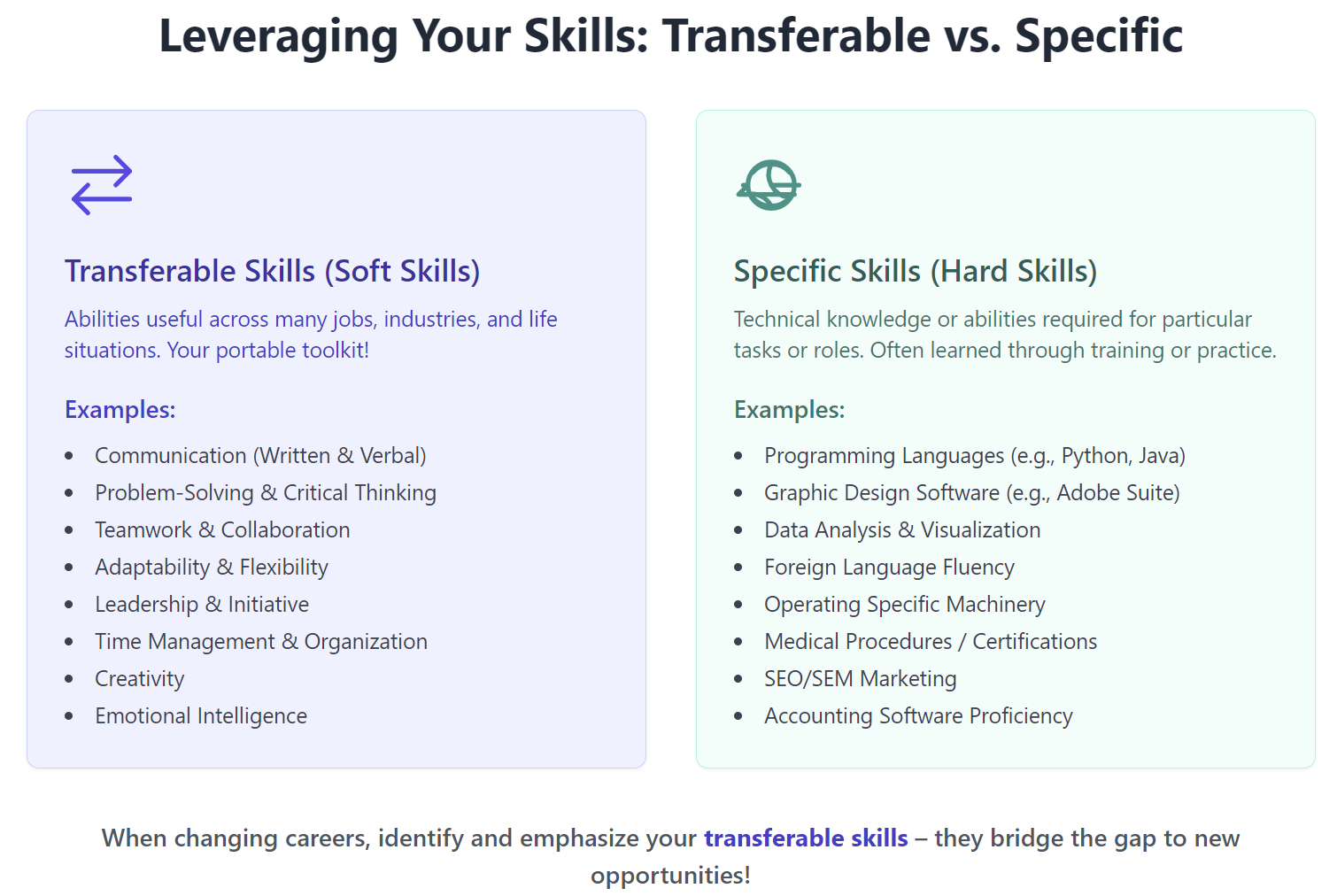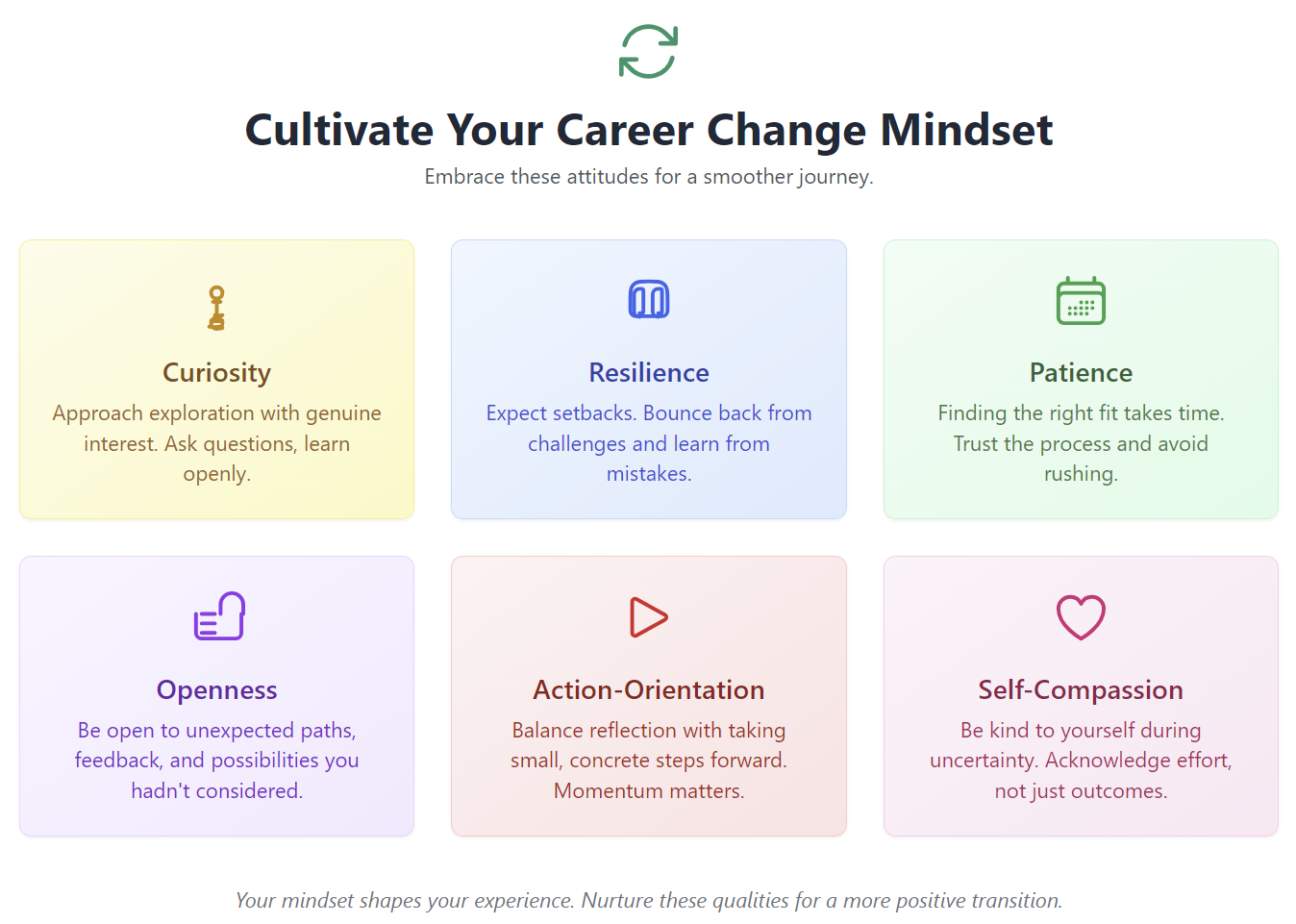How to Find a Career You’ll Love (Even If You Have No Idea Where to Start)
Does passion for your work really matter? Find out how having a career you love impacts your quality of life. Learn how to discover the career options that will have a positive impact on your happiness, energy level, and overall health and well-being.


Back
5 mins read
I know, finding a job you truly love isn’t just important — it’s life-changing. But let’s be honest, it’s rarely easy. I’ve been there myself. Before landing on a career that genuinely made me happy, I went through a long stretch of trial and error.
I switched paths more than once and tried both hands-on physical work and mentally demanding desk jobs. Each step taught me something new, but none of them felt quite right — until I finally found the one that did.
Looking back, I realized something important: we feel truly fulfilled when our desires align with our deeper needs. It’s not just about chasing a dream job — it’s about understanding what genuinely matters to us and finding work that supports that.
That’s why I want to share a few practical, honest steps that helped me get clear on what I really wanted — and how I eventually made it happen. My hope is that these steps will guide you too, no matter where you are on your journey.
8 Actionable Steps to Find a Career You Love
Here are the steps that helped me move from confusion to clarity and ultimately toward a job I genuinely love. Hopefully, they’ll do the same for you.
1. Uncover Your Core Needs and Values
Before looking outward, look inward and self-reflect. What must you have in your work life to feel satisfied? This goes beyond surface desires (like a big salary, though that can be a need, too!).
Think about what genuinely makes you happy. Do you enjoy helping people? Do you probably like working with numbers? Do you thrive in creative freedom, or do you feel more secure in structured environments? Maybe autonomy is essential to you, or perhaps collaboration energizes you.
Action: Grab a journal. Brainstorm answers to questions like:
- What problems do I enjoy solving?
- What kind of impact do I want to make (on people, society, a field)?
- What activities make me lose track of time (flow state)?
- What core values must my work align with (e.g., creativity, autonomy, collaboration, stability, helping others, intellectual challenge)?
- What were my favorite and least favorite aspects of every job or significant project I've ever had? Why?
- What are my non-negotiable needs regarding work environment, flexibility, compensation, and work-life balance.
2. Identify Your Skills and Strengths (Especially the Ones You Enjoy Using)
What are you good at, and which of those skills do you genuinely like using? Fulfillment often lies at the intersection of competence and enjoyment.
Action: List your skills – hard skills (like coding, writing, operating machinery) and soft skills (like communication, leadership, empathy). Mark the ones you enjoy using most. Ask trusted friends or former colleagues for their honest feedback on your strengths.
3. Brainstorm Potential Career Paths (Without Judgment)
Based on your needs, values, enjoyed skills, and interests (from Step 1 & 2), start listing potential roles, industries, or types of work. Don't censor yourself at this stage.
Action: Let your imagination run wild initially. Think broadly: specific job titles, types of companies (startup, non-profit, large corporation), industries (tech, healthcare, arts, trades), or even work styles (freelance, remote, hands-on). Look for themes connecting your needs/skills to these possibilities.
Alternatively, you can take a career test and find out which careers align with your personality type.
4. Research and Explore Your Top Ideas
Now, narrow down your brainstormed list to a few promising contenders and investigate them realistically.
Action:
- Informational Interviews: Reach out to people working in the fields or roles that interest you. Ask about their day-to-day, the pros and cons, required skills, and how they got there. LinkedIn is a great tool for this.
- Online Research: Use job boards (like Indeed, LinkedIn Jobs, specialized industry boards), company websites, and career advice sites (like The Muse, O*NET) to understand typical responsibilities, salary ranges, required qualifications, and career trajectories.
- Shadowing/Observing: If possible, ask to shadow someone for a day or observe the work environment.
5. Test Drive Before Committing
Reading about a job is different from doing it. Find low-risk ways to experience the reality of your top choices.
Action:
- Volunteer: Offer your skills to a non-profit in the field.
- Freelance/Side Project: Take on a small project related to the potential career.
- Internship: Even short-term or part-time internships can provide valuable insight.
- Take a Course/Workshop: Learn a key skill required for the role – this tests your interest and aptitude.
- Temp Work: Sometimes, temporary roles can offer a glimpse into an industry or company culture.
6. Identify and Bridge Any Gaps
Once you have a clearer target (or two), assess what you need to get there. Is it more skills, experience, or credentials?
Action: Compare the requirements of your desired role (from Step 4 research) with your current profile (from Step 2). Identify the gaps. Create a plan to acquire the necessary skills or experience — this could involve further education, online courses, certifications, targeted networking, or finding an interim role that builds relevant experience.
7. Create Your Action Plan and Make the Move
Turn your insights into a concrete plan for transition.
Action: Set realistic short-term goals (e.g., update resume, connect with 3 people in the target industry this month) and long-term goals (e.g., complete certification in 6 months, apply for target roles by X date). Tailor your resume and cover letters. Practice interviewing. Network strategically. Decide on your transition approach (finding a new job before quitting, phasing out gradually, etc.).
8. Embrace the Journey: Reflect and Iterate
Finding a career you love is often a process, not a single destination. Be prepared to learn and adjust along the way.
Action: Regularly check in with yourself once you're in a new role or on a new path. Is it meeting your core needs (from Step 1)? Are you using the skills you enjoy (from Step 2)? Don't be afraid to tweak your path or even pivot again based on new insights. Treat your career as an ongoing exploration, not a final exam. Be patient and kind to yourself throughout the process.
A Career You Love Is a Journey, Not a Destination
If there’s one thing I’ve learned, it’s that your career doesn’t have to be perfect — it just has to feel right for you and match your personality. And what feels right today might shift a year from now, and that’s not failure. That’s growth.
The truth is, we’re all works in progress. You don’t need to have it all figured out to take the next step. What matters is staying honest with yourself, checking in from time to time, and being willing to adjust course when something no longer fits.
Give yourself permission to evolve. To learn more about what lights you up. To walk away from what drains you. Finding a job you love isn’t about locking into one perfect role — it’s about staying in alignment with who you are and what matters most, even as those things change.
So take a deep breath, trust your instincts, and keep moving forward. Your path doesn’t have to look like anyone else’s — it just has to be yours.


Return to Blog











